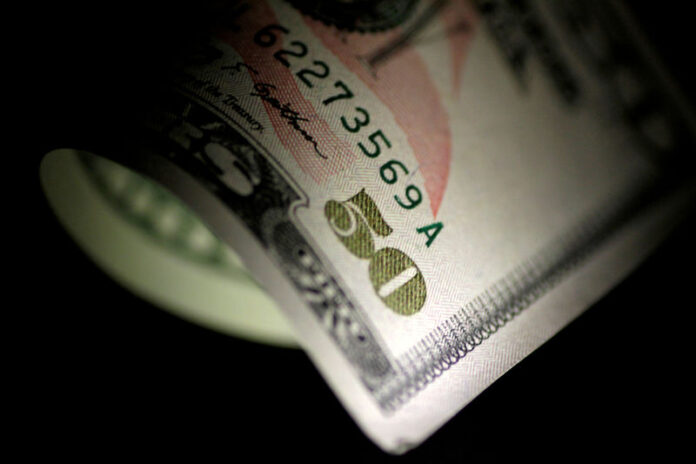KARACHI: Total gross divestment during March 2020 reached $1.735 billion, according to data released by the State Bank of Pakistan (SBP), in what proved to be an extremely tough month where foreign outflows left Pakistan almost every second day.
According to data from the Special Convertible Rupee Account (SCRA), which tracks inflows and outflows from foreign countries, the month of March stands in sharp contrast to the preceding eight months, where positive inflows of varying amounts were recorded.
Notable months include November 2019, which saw a monthly net investment in treasury bills (T-bills) of $713 million, and January 2020, which recorded a monthly net investment of $1.413 billion.
That came to an end in March, where foreign outflows, or ‘hot money’ began to leave the country just as quickly as they had poured in, mostly due to investor worry about the COVID-19 outbreak.
To recap: beginning on March 3, foreign investors divested $103 million net worth of T-Bills.The divestment on March 3 was particularly significant, because it represented the first time there had been net selling in eight months.
This trend continued unabated the next week, with extremely large amounts of outflows recorded on single days, as foreign investors divested $136 million of T-bills on March 10; $251 million on March 11; $166 million on March 12; and a hefty $222 million on March 13.
The succeeding weeks saw less significant amounts of outflows in comparison, with $47 million divested on March 17 and $92 million on March 20. During the week ending March 27, foreign investors divested a combined total of $263 million.
However, the combined effect of the divestments was enough to erode any gains made by the hot money inflows in the eight months prior. The cumulative net investment in T-Bills grew from $15 million in July 2019, to $3.1 billion in February 2020. Now, after March’s divestments, that figure has been more than halved to $1.32 billion.
And the trend does not seem likely to end anytime soon: just on April 1, foreign investors divested $48 million net worth of T-bills.
WHAT HAPPENED IN MARCH?
There are two camps of thought when it comes to explaining what happened to foreign outflows.
The first camp believes that the lower policy rate of March resulted in hot money leaving the economy, just as the higher policy rate of the preceding months had attracted so much hot money to begin with.
The SBP had last increased the policy rate on July 16, 2019 by 100 basis points to 13.25 percent. The central bank further kept the policy rate unchanged in its reviews on September 16 and November 2 in 2019, and on January 28 in 2020.
It finally cut the policy rate by 75 basis points to 12.5pc on March 17, and then just one week later on March 24, by 150 basis points, from 12.5pc to 11pc.
Several analysts in the months prior had warned of relying too much on hot money inflows based off of a high interest rate, as they would prove fickle. Prominent Pakistani-American economist Atif Mian in particular had been cautionary, tweeting in January: “Benefits of free global capital flows have proven to be elusive or illusive. Unregulated capital inflow can build dangerous external liabilities that whiplash the economy & severely constrain the CB”.
However, divestment had already begun before the SBP had announced its rate cuts. In fact divestment first started in earnest in late February, as foreign investors divested $67 million of T-bills on February 28.
Others, including the SBP, belong to the second camp: that foreign outflows had less to do with the policy rate, and more to do with Pakistan’s status as an emerging market or developing country.
Earlier analysts said that in times of uncertainty due to the COVID-19 crisis, foreigners were selling their T-bills from places like Pakistan and India, and investing in more developed markets like Japan or the US. In fact, many developed countries were divesting from emerging markets in order to have liquidity.
This is a view that State Bank of Governor Dr Reza Baqir also agrees with. In the monetary policy announcement on March 17, Dr Reza Baqir said globally, because of coronavirus, there has been a general ‘flight to safety’, that was not linked to whether the SBP significantly changed its policy rate or not.




